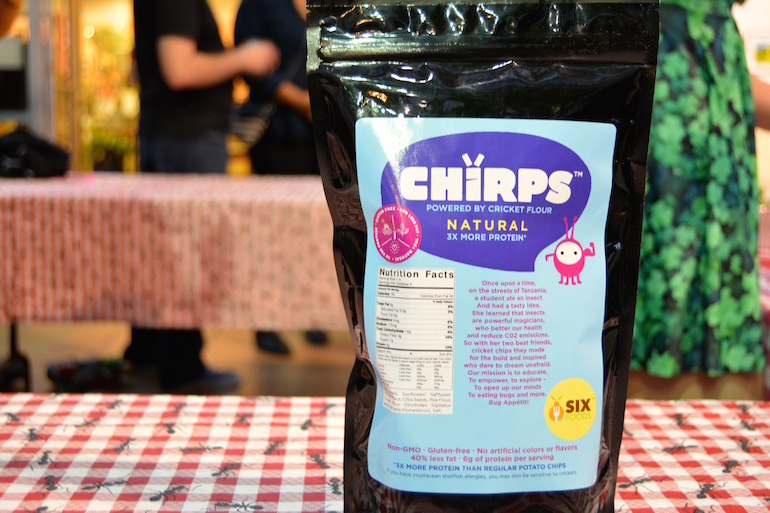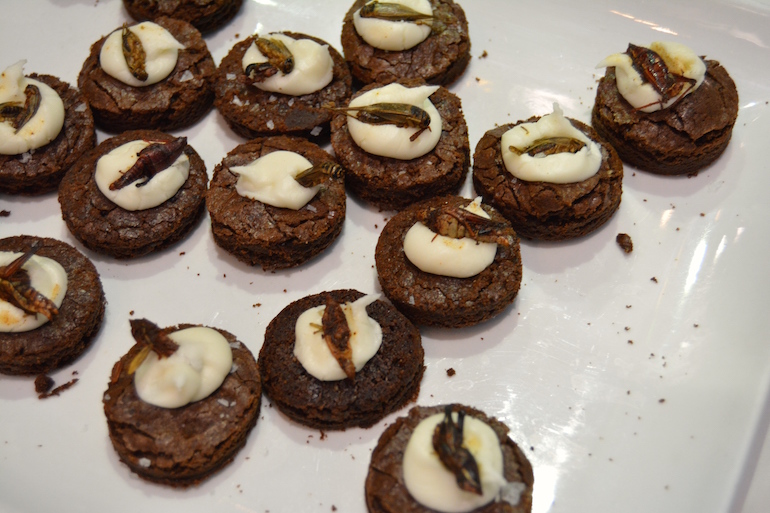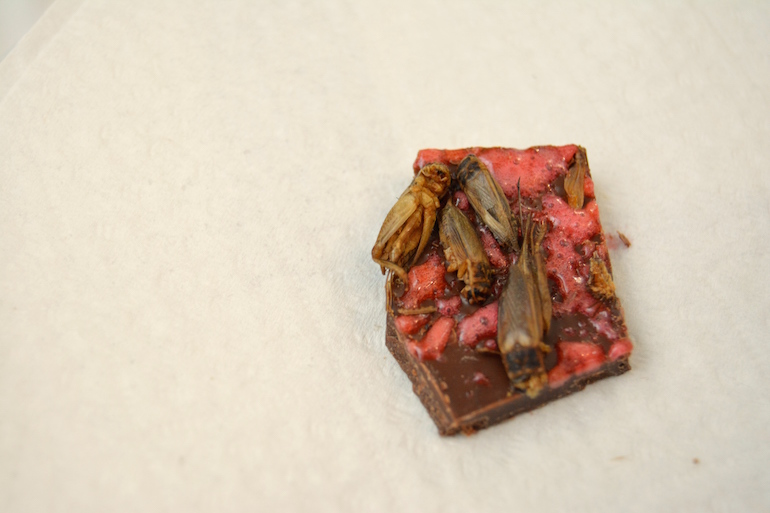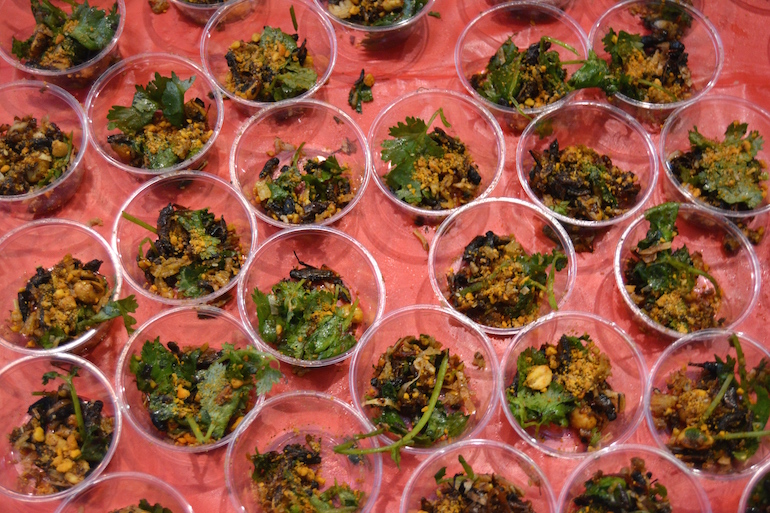“Would you like chicken?”
No, thanks. I’m actually a vegetarian.
“Oh, gotcha. So do you eat fish?”
Well, no, I actually don’t eat that either…
As a vegetarian, you get a fair share of questions about what you do and do not eat. On the surface, the answer is pretty basic (at least according to my good friends Merriam and Webster). Put simply, a vegetarian is, “a person who does not eat meat.”
“Great. So what about bugs?”
What about them??

Photo by Sophie Maschinot
While no one has asked me this question on the spot (thankfully), it is one I have been asking myself a lot recently and have discussed with other meat-avoiding friends, and it has forced me to think about why I decided to become a vegetarian a year and a half ago.
Recently, the idea of eating insects (aka entomophagy) has become more well-known in the United States, although it is already the norm for over 2 billion people, according to a 2013 report by the United Nations Food and Agriculture Organization.
Even more recently, I grabbed a book to smoosh a cockroach in my apartment.

GIF courtesy of giphy.com
Needless to say, bugs are not my favorite study companions and are not currently part of my diet. Despite my vegetarian status, however, I am not ruling them out.

Photo by Sophie Maschinot
When I became a vegetarian, I had a vague sense of why I was making the move. In my head, the equation was something like: love of animals > love of meat.
Because of my Jewish heritage, I grew up keeping Kosher, meaning I didn’t mix meat products and dairy products and only ate certain types of meat slaughtered in certain traditional ways. (This site from Chabad gives a basic outline of what keeping Kosher means.)
Basically, I was used to keeping a vegetarian diet outside of my house where I couldn’t get Kosher meats. So, making the transition to full-time vegetarian was more a skip than a leap. At first, I shut down the idea of entomophagy because I didn’t think insects were Kosher, and in my mental calculus, I decided keeping Kosher was still an important part of my identity.
But, it turns out one type of insect cleared the Kosher test: the locust. This type of grasshopper happens to be singled out in the central Jewish text, the Torah.
Great, so grasshopper for dinner?
Not so fast.

Photo by Sophie Maschinot
Knowing that the Kosher barrier could be breached, I had to start considering the other reasons for my vegetarianism. Most importantly, the love of animals came back to mind. I don’t want a cow or a chicken or a fish or grasshopper harmed on my behalf.
But wait… what about that cockroach I smooshed earlier?
It seems the jury is still out on whether insects feel pain or not, but as one who has ruthlessly taken on a scorpion in my apartment, it would be unfair to say I have shown concern for bug welfare.
As an intern on the University of Georgia organic farm, I have also learned about integrated pest management as a tool for reducing insect damage to crops. This involves more smooshing of insects.
While grasshoppers may be beneficial to farm systems, they fall outside of my animal welfare justifications for vegetarianism.
That left me with one last driver for becoming vegetarian: the environment.

Photo by Sophie Maschinot
It only takes a few well-made food documentaries to show you that big agriculture is taking a big toll on the environment, from the waste to the runoff to just producing enough feed for animals. Insects on the other hand require fewer inputs for greater outputs. Insects can turn 2 kg of food into 1 kg of edible mass (not to mention it has lots of protein), whereas cattle require 8 kg of feed to produce 1 kg of body weight gain, according to the Food and Agriculture Organization.
This still raises an ethical dilemma for me. Why eat an animal that has to eat a plant when I could just eat the plant in the first place?
One argument is protein. While 100 grams of tofu contains 8 grams of protein, according to the United States Department of Agriculture, 100 grams of grasshopper is anywhere from 13 to 28 grams of protein, the Food and Agriculture Organization reported.

Photo by Sophie Maschinot
I don’t think I will be snacking on bugs any time soon, but if faced with a grasshopper and the challenge to try something new which could be a step in a positive direction for the environment, I would probably take a bite.
Some might argue that this means I am not a vegetarian. What asking myself about bugs taught me though, is that before anyone else began quizzing me about my dietary choices, I never sat down to discuss those choices with myself and my conscience.
I put on the label of “vegetarian” because it was easy to tell people and easy to define, but I didn’t leave room for myself to have a nuanced approach to my diet. It is less important to label your diet than it is to understand why you want to shake up your eating habits.
“So what about bugs?”
Yeah, I am a vegetarian who might be willing to take a taste.


